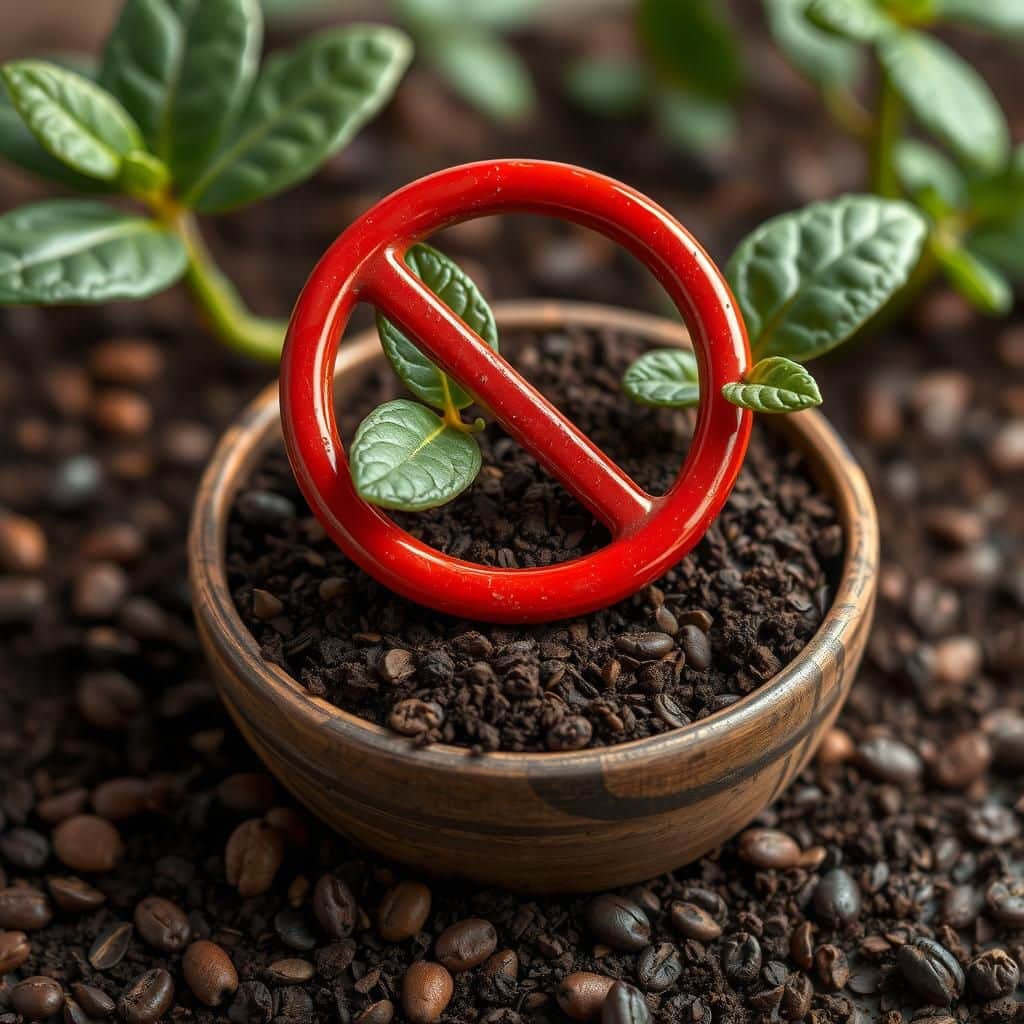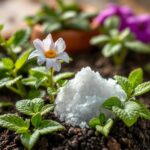Discover Which Plants Cannot Use Coffee Grounds: A Comprehensive Guide

Coffee grounds are a popular addition to many home gardens due to their nutrient content and ability to improve soil structure. However, not all plants benefit from this organic material. In this comprehensive guide, we will explore which plants cannot tolerate coffee grounds and the reasons behind their sensitivity. Understanding these limitations can help gardeners optimize their planting strategies and create a thriving garden ecosystem. Whether you're an experienced gardener or a beginner, this information will empower you to make informed decisions about your soil amendments and ensure the health of your beloved plants.
Which Plants Cannot Use Coffee Grounds?
Coffee grounds are often touted as a beneficial addition to the garden due to their nitrogen content and other nutrients; however, not all plants thrive with this amendment. Certain plants, particularly those that prefer alkaline or neutral soil conditions, such as azaleas, rhododendrons, and certain types of vegetables like beans, can suffer adverse effects from coffee grounds due to their natural acidity. This acidity can disrupt the pH balance required for healthy growth, leading to nutrient deficiencies and hindered development. Thus, while coffee grounds can provide a boost for many plants, it is essential to be selective and aware of specific species that may react poorly to these organic materials.
Plants Sensitive to Soil pH
Many plants require a more balanced or slightly alkaline soil pH for optimal growth. Using coffee grounds can decrease the soil’s pH, making it more acidic. Specific plants like lilies, potatoes, and spinach prefer alkaline conditions, and applying coffee grounds to their soil can lead to stunted growth and nutrient issues. It's crucial for gardeners to test the soil pH before incorporating coffee grounds into the mix for these sensitive species.
Leguminous Plants
Legumes, such as peas and beans, are known for their ability to fix nitrogen in the soil. However, the high nitrogen levels in coffee grounds can upset their delicate balance, leading to excessive foliage growth at the expense of flower and seed production. Therefore, it's advisable for gardeners to avoid using coffee grounds around leguminous plants to maintain their desired growth patterns and health.
Plants With Low Tolerance to Acidity
Certain plants exhibit low tolerance to acidic soils, and coffee grounds, which can lower soil pH, may not be suitable for them. Examples include beets, brassicas (like broccoli and cabbage), and some herbs such as basil. These plants typically prefer a neutral pH range and can experience stunted growth and poor yields if subjected to high acidity from coffee grounds.
Fruiting Plants
Fruiting plants, such as tomatoes and peppers, require specific nutrient conditions to thrive. While they can benefit from nitrogen-rich amendments, the increase in acidity from coffee grounds can negatively impact their overall health and yield. When cultivating such plants, it is recommended to use coffee grounds sparingly or avoid them altogether to ensure a successful harvest.
See also:
Aromatic Herbs
Aromatic herbs like rosemary, lavender, and sage often thrive in well-draining, slightly alkaline soils. When exposed to coffee grounds, these herbs may struggle due to their sensitivity to acidity and may exhibit reduced aromatic oils and compromised flavor. For curious gardeners looking to incorporate coffee grounds into their gardening practices, it would be prudent to select herbs that are less acidic sensitive.
| Plant Type | Effect of Coffee Grounds |
|---|---|
| Sensitive to Soil pH | Stunted growth and nutrient deficiencies |
| Leguminous Plants | Excess foliage, less flowers and seeds |
| Low Tolerance to Acidity | Inhibited growth and yields |
| Fruiting Plants | Poor health and low yield |
| Aromatic Herbs | Reduced aroma and flavor quality |
What plant likes coffee grounds the most?

The plant that benefits most from coffee grounds is the rhododendron. Rhododendrons are part of the Ericaceae family, which thrives in acidic soils. The addition of coffee grounds to the soil can enhance its acidity, making it a more favorable environment for rhododendrons as they naturally prefer a pH level between 5.0 and 6.0. The grounds also provide a source of nitrogen, which promotes healthy growth, vibrant blooms, and overall plant vitality.
The Benefits of Coffee Grounds for Rhododendrons
Adding coffee grounds to rhododendrons offers several advantages:
- Improved Soil Structure: Coffee grounds help to increase the organic matter in the soil, leading to better drainage and aeration.
- Nutrient Enrichment: They provide essential nutrients such as nitrogen, phosphorus, and potassium, which are vital for healthy plant development.
- Enhanced Microbial Activity: The organic matter from coffee grounds encourages beneficial microorganisms in the soil, promoting a healthy ecosystem.
How to Use Coffee Grounds with Rhododendrons
Using coffee grounds effectively requires proper application methods:
- Mixing into Soil: Blend the coffee grounds into the soil around the base of the rhododendrons to improve nutrient availability.
- Composting: Combine coffee grounds with other compost materials to create a nutrient-rich compost to be applied later.
- Mulching: Spread a thin layer of coffee grounds on the soil surface to retain moisture and suppress weeds while providing nutrients as they break down.
Potential Risks of Overusing Coffee Grounds
While beneficial, caution is needed to avoid negative effects:
See also:
- Excessive Acidity: Overapplication can lead to overly acidic soil, which may harm the rhododendrons or hinder the growth of other companion plants.
- Mold Growth: If not dried properly, coffee grounds may develop mold, which can negatively impact plant health.
- Nutrient Imbalance: Relying solely on coffee grounds can lead to nutrient imbalances, as the plants might not receive a full spectrum of necessary nutrients.
Other Plants That Enjoy Coffee Grounds
In addition to rhododendrons, several other plants benefit from coffee grounds:
- Blueberries: Similar to rhododendrons, blueberries thrive in acidic soils and can benefit from coffee ground additions.
- Azaleas: Like rhododendrons, azaleas are part of the same family and enjoy a boost from coffee grounds.
- Carrots: Coffee grounds can improve soil structure, making it easier for carrot roots to grow straight and healthy.
Environmental Benefits of Recycling Coffee Grounds
Using coffee grounds not only helps plants but also has broader environmental benefits:
- Waste Reduction: Recycling coffee grounds reduces waste sent to landfills by repurposing them for gardening.
- Soil Improvement: They contribute to sustainable gardening practices by enhancing soil health naturally.
- Cost-Effective Fertilization: Utilizing coffee grounds is an inexpensive way to supplement soil nutrients, minimizing the need for chemical fertilizers.
Questions from Our Readers
Which plants should avoid coffee grounds?
Coffee grounds can be beneficial for many plants, but some, like azaleas, gardenias, and blueberries, should avoid them. These plants prefer acidic soils and too much caffeine in coffee grounds can disturb their growth and health.
How do coffee grounds affect soil pH?
Coffee grounds are slightly acidic when added to soil, which can alter the pH levels. While many plants thrive with this change, plants such as carrots and beets can be negatively impacted as they prefer a more neutral pH.
Can coffee grounds harm my vegetable garden?
Certain vegetables, particularly onions and garlic, may not respond well to coffee grounds. These plants can be affected by the caffeine content and the potential increase in acidity, which might hinder their growth.
Are there any indoor plants that cannot use coffee grounds?
Yes, some indoor plants like spider plants and peace lilies may not benefit from coffee grounds. The caffeine and acidity can be detrimental to their health, making it better to avoid using grounds in their soil mix.
See also:

If you want to read more articles like Discover Which Plants Cannot Use Coffee Grounds: A Comprehensive Guide, we recommend you check out our Plants category.
Leave a Reply
Related Articles